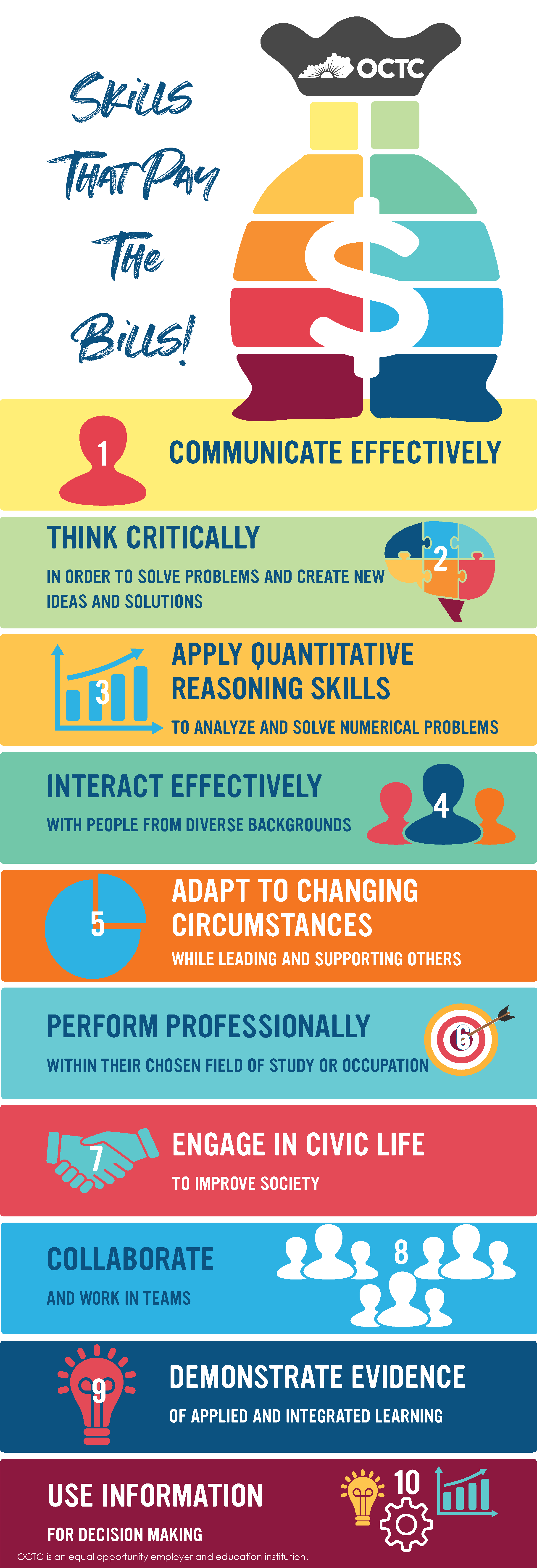Skills That Shape the Future: The 10 Essential Skills Every Student Needs
 As a college associate professor, I see firsthand that success in today’s world requires
more than just knowledge—it’s about having the right skills to communicate, adapt,
and thrive. Whether you’re working with animals, people, or data, these 10 essential
skills are the key to setting our graduates apart and preparing them for whatever
challenges life or work may present.
As a college associate professor, I see firsthand that success in today’s world requires
more than just knowledge—it’s about having the right skills to communicate, adapt,
and thrive. Whether you’re working with animals, people, or data, these 10 essential
skills are the key to setting our graduates apart and preparing them for whatever
challenges life or work may present.
The Kentucky Graduate Profile Academy has nailed it by focusing on these 10 practical and proven skills. They’re not just checkboxes; they form the foundation for building confidence, making a difference, and navigating a rapidly changing world. Let’s explore how you can implement these skills in your classroom!
1. Communicate Effectively
Effective communication is a cornerstone of professional success. When you implement this skill, students will learn to listen attentively, weigh influencing factors, and respond accurately and professionally. Through writing, speaking, and formal presentations, they will develop the ability to express thoughts coherently and confidently, ensuring they can connect and engage with diverse audiences.
Incorporating in the Classroom:
- Online: Use discussion boards, video presentations, and peer feedback to foster written and verbal communication skills.
- In-Person: Encourage class debates, group presentations, and role-playing scenarios to simulate professional communication settings.
2. Think Critically to Solve Problems and Innovate
The ability to think critically empowers students to tackle challenges head-on. With this skill, they will evaluate assumptions and assess information to make informed decisions. Additionally, their creativity will shine as they develop new solutions and combine ideas in original ways to address complex issues.
Incorporating in the Classroom:
- Online: Assign case studies or problem-solving scenarios for students to analyze and discuss in breakout rooms.
- In-Person: Facilitate group problem-solving workshops and encourage brainstorming sessions to foster critical and creative thinking.
3. Apply Quantitative Reasoning
In an increasingly data-driven world, quantitative reasoning is vital. OCTC graduates will be equipped to analyze numerical data, solve problems, and select methodologies that lead to well-informed conclusions. This skill set enhances decision-making in any career field!
Incorporating in the Classroom:
- Online: Provide interactive simulations or virtual labs that require data analysis and interpretation.
- In-Person: Use hands-on activities like real-world data collection and analysis to develop quantitative reasoning skills.
4. Interact Effectively with People from Diverse Backgrounds
Cultural competence is essential in today’s globalized workforce. Students will excel at engaging with individuals from diverse perspectives and backgrounds through collaboration and respectful communication.
Incorporating in the Classroom:
- Online: Create group projects with diverse teams and incorporate global perspectives in course materials.
- In-Person: Host cultural exchange activities, guest lectures from diverse professionals, and collaborative group discussions.
5. Adapt and Lead Through Change
Change is unavoidable, and students will be prepared to embrace it. With this skill, they will thrive in dynamic environments, motivate others toward shared goals, and lead with confidence.
Incorporating in the Classroom:
- Online: Use adaptive learning platforms and assign leadership roles in group projects.
- In-Person: Provide opportunities for students to lead class discussions or organize small team initiatives.
6. Perform Professionally in Their Field of Study or Occupation
Professionalism sets students apart! When this skill is implemented, students will learn how to adhere to ethical standards, prioritize tasks, manage time effectively, and demonstrate accountability—upholding the integrity and reliability expected in their chosen professions.
Incorporating in the Classroom:
- Online: Simulate professional environments through project deadlines, peer evaluations, and virtual internships.
- In-Person: Incorporate real-world scenarios, mock interviews, and time-management workshops.
7. Engage in Civic Life to Improve Society
Civic engagement is a hallmark of a well-rounded student. This skill helps students develop a deep commitment to societal improvement, addressing issues that matter and contributing to positive change through political, social, and community activities.
Incorporating in the Classroom:
- Online: Assign research projects on civic issues and encourage participation in virtual community service events.
- In-Person: Organize service-learning opportunities and discussions on current social and political challenges.
8. Collaborate and Work in Teams
Teamwork is critical in any professional setting. Students will be skilled collaborators, equipped to manage conflict, contribute effectively to group efforts, and build strong relationships with colleagues to achieve common objectives with this skill.
Incorporating in the Classroom:
- Online: Use collaborative tools like shared documents and video conferencing for team projects.
- In-Person: Implement group activities and peer evaluations to encourage teamwork and accountability.
9. Demonstrate Applied and Integrated Learning
Academic knowledge is most valuable when it can be applied in real-world contexts! Students will learn to seamlessly integrate theoretical concepts with practical applications, ensuring they are ready to meet the demands of their careers with competence and confidence.
Incorporating in the Classroom:
- Online: Offer virtual internships or projects that mirror workplace challenges.
- In-Person: Provide opportunities for hands-on learning through labs, fieldwork, or capstone projects.
10. Use Information for Decision-Making
In an age of information overload, the ability to identify, evaluate, and use information responsibly is paramount. Students need the ability to be adept at making decisions informed by credible data and evidence, ensuring integrity and precision in their professional and personal lives.
Incorporating in the Classroom:
- Online: Teach research skills through curated databases and assign data-driven decision-making exercises.
- In-Person: Facilitate workshops on evaluating sources and using evidence in real-world problem-solving.
These 10 essential skills are the cornerstone of our commitment to student success. Integrating them into our classrooms ensures our graduates are well-prepared for their careers and equipped to lead, innovate, and contribute meaningfully to society. Incorporating these skills in both online and in-person settings helps create a dynamic, inclusive learning environment that fosters growth and prepares students for the future.
Kentucky Graduate Profile Academy
Owensboro Community and Technical College GPA Team:
- Dr. Veena Sallan, CAO, Vice-President of Academic Affairs
- Dr. Shane Armstrong, Dean of Student Success
- Jacqueline Jackson (lead), LVT, Associate Professor, Veterinary Technology
- Kathy Hoffman, Dean of Academic Affairs, Professional and Technical Studies Division

Jacqueline Jackson has taught in the Veterinary Technology program for almost 11 years. Her specialty is veterinary dentistry, clinical chemistry, parasitology, hematology, medical terminology, and livestock management. She loves being a licensed veterinary technician and teaching is her passion. In her spare time, she likes to spend time with her husband Adam, 3 children (Joslyn 12, Jander 8, and June 4), and their variety of pets ( 4 dogs Bailey pictured with her in photo Ellie, Rossi, and Archie), 1 spicy cat (Catrina), 3 chickens, 1 ferret (Pesto) , 2 ponies (Buddy and Midnight), 2 horses (Jaxx and Ebby), 1 mule (Zeke), 1 mini donkey (Jed), 1 alpaca (Ozzy), 1 rabbit (Nunnie), 1 “pet” cow (Moo-moo). She completed her Bachelor of Science with a minor in Equine Science from Murray State University. In May of 2024 she earned a Masters degree online at Morehead University with an emphasis on technical education and educational leadership.
